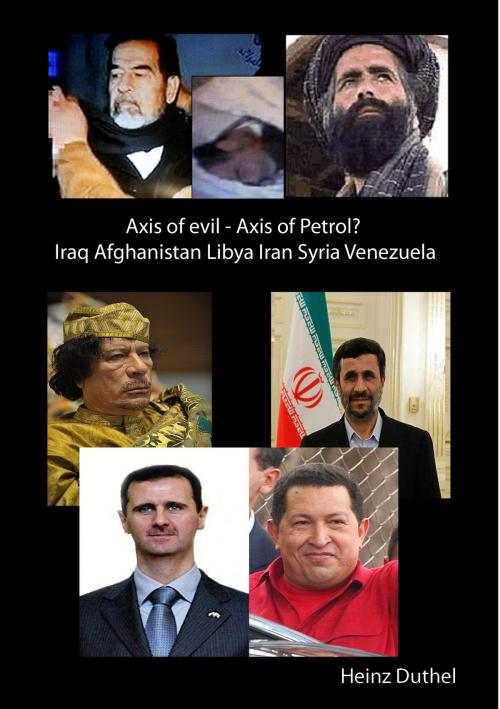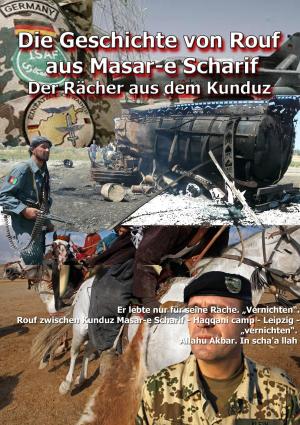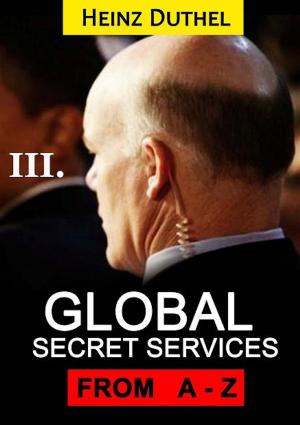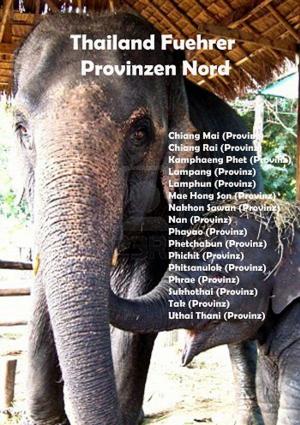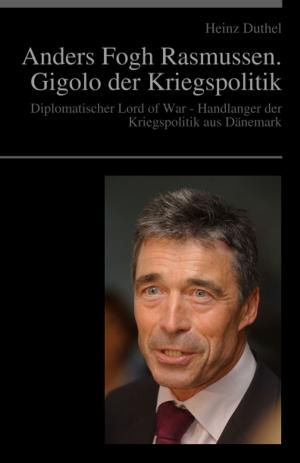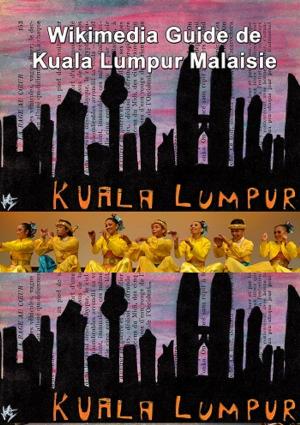Axis of evil - Axis of Petrol?
Iraq Afghanistan Libya Iran Syria Venezuela
Biography & Memoir, Political, Nonfiction, Social & Cultural Studies, True Crime, Political Science| Author: | Heinz Duthel | ISBN: | 1230000156034 |
| Publisher: | Heinz Duthel | Publication: | July 29, 2013 |
| Imprint: | Language: | English |
| Author: | Heinz Duthel |
| ISBN: | 1230000156034 |
| Publisher: | Heinz Duthel |
| Publication: | July 29, 2013 |
| Imprint: | |
| Language: | English |
- Energy War
- The war is being waged by various means including through economics, culture, politics, religion and military. Each component is being brought to bare as effectively as possible. Currently, the USA appears to be winning the war with multiple influences throughout the middle east and other energy rich regions.
- One strategy of the war is to destabalize the nations of the middle east. This ensures that they will be unable to protect their energy resources. The people are being distracted by basic needs for security, water, food and other basic needs. To the competitors in the war, it is of highest priority to make sure the people of the energy rich nation are unable to collectively focus. Unstable governments are very effective in ensuring that the people will be unable to prevent the removal of their oil.
- All Muslim nations are being attacked in order to weaken them. If these nations were to unite, they could theoretically control the oil, and cause the economic collapse of the energy poor nations. Political unrest within the region has been fueled by strategic destabalizing events. Organizations such as the United States' CIA have worked to ensure that no unified Muslim nation could be formed. By building public alliances with countries such as Egypt, Pakistan, Saudi Arabia, and Indonesia, building a unified Muslim nation has been impossible. In the same way, the creation of a unified Arab nation has been defeated. The insertion of Israel into the middle east has ensured instability within the region.
- Other regions are also under attack in this war. Venezuela and Colombia have both come under attack in order to control oil exports. Recently, a campaign to pain the Venezuelan President as a dictator has emerged within the United States. This is due to the fear that Venezuela will reduce oil exports to the United States or other strong oil dependant nations.
- Iran has been under attack for years. Recently, the election of a new President, who has called for reduced oil exports, has led to an increased pressure. The European Union in particular is focusing on preventing Iran from developing uranium based technologies. The arguement is that Iran could eventually become a nuclear power. This reasoning is similar to the thought police ideas used to justify the War for the Oil of Iraq.
- The USA has carefully deployed over 500,000 people throughout the middle east to control the region. The military has established Army, Navy, and Air Force bases throughout the region. This is to deter the European Union, China, Russia, Japan or any other nation from controling the energy supply.
- The Beneficiary
- It is conceivable that there is one person who is ultimately controlling everything from far behind the scenes. For convinience, this person will be refered to as the Beneficiary. In this scenario, the Beneficiary controls the world by ensuring that all things required to sustain themselves and their family in ultimate wealth remains in place. By using a team of experts, the Beneficiary controls organizations that have power such as the WTO, IMF, United Nations, USA, European Union, multinational corporations, and NGOs. By having each organization working to ensure the position of the Beneficiary, life can be enjoyed without any impediments. Very likely, the Beneficiary would have a system devised to allow a smooth transition to the successor. The key strength of the Beneficiary is the cooperation of powerful organizations and economics. The use of currency and money guarentee that the Beneficiary remains in a life of ultra-luxury.
- The worst situation that could happen, in the mind of the Beneficiary, was if the people were to stop using money or desiring products. The Beneficiary needs millions of people working to ensure that airlines, food systems, entertainment and other sectors are successful. If the people were to stop using money, to value unnecessary resources, or to abandon the concept of private land, the system would collapse, and the Emperor would loose all power. The Beneficiary would become equal to everyone else and have to survive based on his skills to his own local community.
- This is not to rule out economic collapse of organizations or nations. To the contrary, the collapse of a currency simply allows a transition to a new currency, and helps to ensure that no one else can rise to the relative power of the Beneficiary. Various cases of stagflation, inflation, hyperinflation and deflation have allowed the Beneficiary to maintain control. The people of the United States will fact this automatically after the global war ends, and the people can not make up for the loss of energy from oil.
- Oil Wars
- "Let's look at it simply. The most important difference between North Korea and Iraq is that economically, we just had no choice in Iraq. The country swims on a sea of oil." *
- US deputy defence secretary, Paul Wolfowitz, in Singapore, 31 May-1 June, 2003
- "...for reasons that have a lot to do with the US government bureaucracy, we settled on the one issue that everyone could agree on: weapons of mass destruction."
- Paul Wolfowitz, Vanity Fair magazine, May 2003
- Soldiers
- For me, one of the clearest proofs that the world is facing an oil crisis was the illegal attack on Iraq by the USA and UK in 2003. While much time and hot air was spent on finding alternative reasons for the invasion, the only purpose which seems to have stood up to post-war scrutiny is that of securing future oil supplies. The other proposed reasons – 'humanitarianism', links with Al-Qaeda, threats to other countries, the notorious weapons of mass destruction – have all been refuted or, at least, shown to be seriously flawed. When you realise that the USA's first military objective of the invasion of the country was to secure control of the oil fields and refineries of southern Iraq, and that the US forces in Baghdad occupied and defended the Oil Ministry while allowing the other government buildings to be overrun, suspicions seem to be well supported.
- Future Oil Wars
- It is not unusual for countries to go to war to secure something that they need and do not have. It looks now as if we have had two modern oil wars (can anybody doubt that the USA and Europe would have bothered to liberate Kuwait, or Iraq invade it, if it did not have the sixth – depending on statistics – largest oil reserves?) It is probable that there will be many more in the decades to comes.
- There are four countries which will decide future wars: Europe, Russia, China and the USA (for the sake of convenience and brevity, Europe is considered a country here). Europe has high energy use but its federal structure may not be strong enough to use its armed forces to secure supplies. Russia has the advantage of having its own large reserves of oil and gas, and its military will probably be concerned with stopping others getting access to it, rather than obtaining other countries' resources. China does not, as yet, require large amounts of energy (although they are growing fast) and its future attitude could depend on how it could restrict the growth in energy needs. The USA is the kingpin. It is not only the highest energy consumer in the world, it has the strongest military forces and is not reluctant to use them. But it is the third factor which is vital. Unlike the other three, it has no land access to the two largest oil and gas sources – the Middle East and the Caspian. Transporting oil and gas by sea is a very vulnerable method of supply. It is much easier to replace a length of pipeline than an oil tanker. It is easier to bury a pipeline underground than to design a submersible tanker. If the USA continues to create enemies around the world, its vulnerability will make it likely to be centre stage in future wars.
- Note: There is some argument that the Afghan war was also about oil. Bin Laden and most of the 11 September hijackers came from Saudi Arabia yet the USA attacked Afghanistan, not the former country. Also, Afghanistan sits neatly between the two main oil producing areas – the Middle East and the Caspian Sea (see the map above). A very convenient place to base troops.
- OPEC v Non-OPEC Production
- As shown in Chart W1, it will not be long (around 2010) before more than 50% of the world’s oil production will come from OPEC. (For the purpose of this chart, all of the Middle East countries have been included in the OPEC grouping. When it comes to future conflicts, it will be hard for any Middle Eastern country to remain neutral.)
- Opec/Non OPEC Crossover chart
- W1. OPEC/Non-OPEC Crossover
- Chart W2 shows how the percentages change between the two major oil producing areas and the rest of the world. In the future, the Former Soviet Union will become extra important as, although smaller than OPEC/Middle East, it will begin to equal the rest of the world.
- Production by region chart
- W2. Oil Production by Region
- So, with other major supplies also being in unstable areas - eg. Venezuela, Russia - there is a great fear that the USA could be held to ransom in the future, especially since it uses far more oil than any other country. It is not surprising therefore than the US military and government should think about securing access to the Middle East wells.
- But is there any proof of this suspicion? There is and they are quite open about it.
- page break
- "Project for the New American Century"
- This is a group of highly influential neo-conservatives, many of whom have interests in the USA government and/or the oil industry. Among their members are Jeb Bush, Dick Cheney, Dan Quayle, Donald Rumsfeld and Paul Wolfowitz. On their website , they make it very clear their attitudes to the USA, the world and oil. (www.newamericancentury.org)
- The Project for the New American Century is a non-profit educational organisation dedicated to a few fundamental propositions: that American leadership is good both for America and for the world; that such leadership requires military strength, diplomatic energy and commitment to moral principle; and that too few political leaders today are making the case for global leadership.
- It is not difficult to find their attitudes to oil in the Middle East.
- In protecting its interests in the Persian Gulf, the United States has always hoped for a regional partner: first Iran, then Iraq, then the Saudis; in their turn, each of these has proven itself incapable of the job. Fortunately, the Saudis probably overestimate the threat they pose to the president’s policy. Denying the U.S. access to Saudi bases will make the war against Iraq harder, but will not stop it. Further, removing Saddam Hussein’s regime from power in Baghdad will reduce the Saudis’ leverage even more - returning Iraqi oil fully to market can only reduce the Saudis’ ability to set oil prices, and make the US bases there superfluous.
- 25 April, 2002. Memorandum to: Opinion Leaders; From: William Kristol; Subject: Saudi Arabia
- or this from a letter to the then President Clinton on 26 January, 1998.
- It hardly needs to be added that if Saddam does acquire the capability to deliver weapons of mass destruction, as he is almost certain to do if we continue along the present course, the safety of American troops in the region, of our friends and allies like Israel and the moderate Arab states, and a significant portion of the world’s supply of oil will all be put at hazard. [My emphasis]
- For over a decade, the USA has had a military presence in Saudi Arabia, ostensibly to protect that country against Iraq. After the Iraq War ‘ended’, it was announced that the forces would be pulled out.
- RIYADH, Saudi Arabia The United States said Tuesday that it would withdraw all combat forces in Saudi Arabia by this summer, ending more than a decade of military operations in this strategic Middle East nation.
- Defence Secretary Donald Rumsfeld and his Saudi counterpart, Prince Sultan bin Abdulaziz, said at a news conference here that the end of the Iraq war and Saddam Hussein’s government meant that America’s military mission here was over. Only a small military training program will remain.…Even before Tuesday’s announcement, American forces in Saudi Arabia, which doubled to 10,000 during the Iraq war, had started pulling out of sprawling desert airbase used by United States warplanes since 1991 to patrol the no-flight zone in southern Iraq.
- The presence of American forces since the 1991 Gulf War has been a contentious issue in Saudi Arabia, and has fuelled the terrorism of Osama bin Laden. The Qaeda leader, who was born in Saudi Arabia, has called for the withdrawal of “infidel” American troops from the land of the two holiest sites in Islam.
- Tensions between the two allies flared shortly after the air operations centre open in 2001, just before the Sept. 11 attacks. In the first day of the Afghan air campaign, Saudi Arabia did not allow American warplanes to fly through Saudi air space, an American official said. The issue was quickly resolved but the delay rankled American commanders. The Saudi government barred the United States from launching airstrikes against Afghanistan or Iraq from Prince Sultan Air Base. One reason the Pentagon built the back-up air command centre in Qatar was because officials fear the Saudis might deny us use of their site in the Iraq war.
- Energy War
- The war is being waged by various means including through economics, culture, politics, religion and military. Each component is being brought to bare as effectively as possible. Currently, the USA appears to be winning the war with multiple influences throughout the middle east and other energy rich regions.
- One strategy of the war is to destabalize the nations of the middle east. This ensures that they will be unable to protect their energy resources. The people are being distracted by basic needs for security, water, food and other basic needs. To the competitors in the war, it is of highest priority to make sure the people of the energy rich nation are unable to collectively focus. Unstable governments are very effective in ensuring that the people will be unable to prevent the removal of their oil.
- All Muslim nations are being attacked in order to weaken them. If these nations were to unite, they could theoretically control the oil, and cause the economic collapse of the energy poor nations. Political unrest within the region has been fueled by strategic destabalizing events. Organizations such as the United States' CIA have worked to ensure that no unified Muslim nation could be formed. By building public alliances with countries such as Egypt, Pakistan, Saudi Arabia, and Indonesia, building a unified Muslim nation has been impossible. In the same way, the creation of a unified Arab nation has been defeated. The insertion of Israel into the middle east has ensured instability within the region.
- Other regions are also under attack in this war. Venezuela and Colombia have both come under attack in order to control oil exports. Recently, a campaign to pain the Venezuelan President as a dictator has emerged within the United States. This is due to the fear that Venezuela will reduce oil exports to the United States or other strong oil dependant nations.
- Iran has been under attack for years. Recently, the election of a new President, who has called for reduced oil exports, has led to an increased pressure. The European Union in particular is focusing on preventing Iran from developing uranium based technologies. The arguement is that Iran could eventually become a nuclear power. This reasoning is similar to the thought police ideas used to justify the War for the Oil of Iraq.
- The USA has carefully deployed over 500,000 people throughout the middle east to control the region. The military has established Army, Navy, and Air Force bases throughout the region. This is to deter the European Union, China, Russia, Japan or any other nation from controling the energy supply.
- The Beneficiary
- It is conceivable that there is one person who is ultimately controlling everything from far behind the scenes. For convinience, this person will be refered to as the Beneficiary. In this scenario, the Beneficiary controls the world by ensuring that all things required to sustain themselves and their family in ultimate wealth remains in place. By using a team of experts, the Beneficiary controls organizations that have power such as the WTO, IMF, United Nations, USA, European Union, multinational corporations, and NGOs. By having each organization working to ensure the position of the Beneficiary, life can be enjoyed without any impediments. Very likely, the Beneficiary would have a system devised to allow a smooth transition to the successor. The key strength of the Beneficiary is the cooperation of powerful organizations and economics. The use of currency and money guarentee that the Beneficiary remains in a life of ultra-luxury.
- The worst situation that could happen, in the mind of the Beneficiary, was if the people were to stop using money or desiring products. The Beneficiary needs millions of people working to ensure that airlines, food systems, entertainment and other sectors are successful. If the people were to stop using money, to value unnecessary resources, or to abandon the concept of private land, the system would collapse, and the Emperor would loose all power. The Beneficiary would become equal to everyone else and have to survive based on his skills to his own local community.
- This is not to rule out economic collapse of organizations or nations. To the contrary, the collapse of a currency simply allows a transition to a new currency, and helps to ensure that no one else can rise to the relative power of the Beneficiary. Various cases of stagflation, inflation, hyperinflation and deflation have allowed the Beneficiary to maintain control. The people of the United States will fact this automatically after the global war ends, and the people can not make up for the loss of energy from oil.
- Oil Wars
- "Let's look at it simply. The most important difference between North Korea and Iraq is that economically, we just had no choice in Iraq. The country swims on a sea of oil." *
- US deputy defence secretary, Paul Wolfowitz, in Singapore, 31 May-1 June, 2003
- "...for reasons that have a lot to do with the US government bureaucracy, we settled on the one issue that everyone could agree on: weapons of mass destruction."
- Paul Wolfowitz, Vanity Fair magazine, May 2003
- Soldiers
- For me, one of the clearest proofs that the world is facing an oil crisis was the illegal attack on Iraq by the USA and UK in 2003. While much time and hot air was spent on finding alternative reasons for the invasion, the only purpose which seems to have stood up to post-war scrutiny is that of securing future oil supplies. The other proposed reasons – 'humanitarianism', links with Al-Qaeda, threats to other countries, the notorious weapons of mass destruction – have all been refuted or, at least, shown to be seriously flawed. When you realise that the USA's first military objective of the invasion of the country was to secure control of the oil fields and refineries of southern Iraq, and that the US forces in Baghdad occupied and defended the Oil Ministry while allowing the other government buildings to be overrun, suspicions seem to be well supported.
- Future Oil Wars
- It is not unusual for countries to go to war to secure something that they need and do not have. It looks now as if we have had two modern oil wars (can anybody doubt that the USA and Europe would have bothered to liberate Kuwait, or Iraq invade it, if it did not have the sixth – depending on statistics – largest oil reserves?) It is probable that there will be many more in the decades to comes.
- There are four countries which will decide future wars: Europe, Russia, China and the USA (for the sake of convenience and brevity, Europe is considered a country here). Europe has high energy use but its federal structure may not be strong enough to use its armed forces to secure supplies. Russia has the advantage of having its own large reserves of oil and gas, and its military will probably be concerned with stopping others getting access to it, rather than obtaining other countries' resources. China does not, as yet, require large amounts of energy (although they are growing fast) and its future attitude could depend on how it could restrict the growth in energy needs. The USA is the kingpin. It is not only the highest energy consumer in the world, it has the strongest military forces and is not reluctant to use them. But it is the third factor which is vital. Unlike the other three, it has no land access to the two largest oil and gas sources – the Middle East and the Caspian. Transporting oil and gas by sea is a very vulnerable method of supply. It is much easier to replace a length of pipeline than an oil tanker. It is easier to bury a pipeline underground than to design a submersible tanker. If the USA continues to create enemies around the world, its vulnerability will make it likely to be centre stage in future wars.
- Note: There is some argument that the Afghan war was also about oil. Bin Laden and most of the 11 September hijackers came from Saudi Arabia yet the USA attacked Afghanistan, not the former country. Also, Afghanistan sits neatly between the two main oil producing areas – the Middle East and the Caspian Sea (see the map above). A very convenient place to base troops.
- OPEC v Non-OPEC Production
- As shown in Chart W1, it will not be long (around 2010) before more than 50% of the world’s oil production will come from OPEC. (For the purpose of this chart, all of the Middle East countries have been included in the OPEC grouping. When it comes to future conflicts, it will be hard for any Middle Eastern country to remain neutral.)
- Opec/Non OPEC Crossover chart
- W1. OPEC/Non-OPEC Crossover
- Chart W2 shows how the percentages change between the two major oil producing areas and the rest of the world. In the future, the Former Soviet Union will become extra important as, although smaller than OPEC/Middle East, it will begin to equal the rest of the world.
- Production by region chart
- W2. Oil Production by Region
- So, with other major supplies also being in unstable areas - eg. Venezuela, Russia - there is a great fear that the USA could be held to ransom in the future, especially since it uses far more oil than any other country. It is not surprising therefore than the US military and government should think about securing access to the Middle East wells.
- But is there any proof of this suspicion? There is and they are quite open about it.
- page break
- "Project for the New American Century"
- This is a group of highly influential neo-conservatives, many of whom have interests in the USA government and/or the oil industry. Among their members are Jeb Bush, Dick Cheney, Dan Quayle, Donald Rumsfeld and Paul Wolfowitz. On their website , they make it very clear their attitudes to the USA, the world and oil. (www.newamericancentury.org)
- The Project for the New American Century is a non-profit educational organisation dedicated to a few fundamental propositions: that American leadership is good both for America and for the world; that such leadership requires military strength, diplomatic energy and commitment to moral principle; and that too few political leaders today are making the case for global leadership.
- It is not difficult to find their attitudes to oil in the Middle East.
- In protecting its interests in the Persian Gulf, the United States has always hoped for a regional partner: first Iran, then Iraq, then the Saudis; in their turn, each of these has proven itself incapable of the job. Fortunately, the Saudis probably overestimate the threat they pose to the president’s policy. Denying the U.S. access to Saudi bases will make the war against Iraq harder, but will not stop it. Further, removing Saddam Hussein’s regime from power in Baghdad will reduce the Saudis’ leverage even more - returning Iraqi oil fully to market can only reduce the Saudis’ ability to set oil prices, and make the US bases there superfluous.
- 25 April, 2002. Memorandum to: Opinion Leaders; From: William Kristol; Subject: Saudi Arabia
- or this from a letter to the then President Clinton on 26 January, 1998.
- It hardly needs to be added that if Saddam does acquire the capability to deliver weapons of mass destruction, as he is almost certain to do if we continue along the present course, the safety of American troops in the region, of our friends and allies like Israel and the moderate Arab states, and a significant portion of the world’s supply of oil will all be put at hazard. [My emphasis]
- For over a decade, the USA has had a military presence in Saudi Arabia, ostensibly to protect that country against Iraq. After the Iraq War ‘ended’, it was announced that the forces would be pulled out.
- RIYADH, Saudi Arabia The United States said Tuesday that it would withdraw all combat forces in Saudi Arabia by this summer, ending more than a decade of military operations in this strategic Middle East nation.
- Defence Secretary Donald Rumsfeld and his Saudi counterpart, Prince Sultan bin Abdulaziz, said at a news conference here that the end of the Iraq war and Saddam Hussein’s government meant that America’s military mission here was over. Only a small military training program will remain.…Even before Tuesday’s announcement, American forces in Saudi Arabia, which doubled to 10,000 during the Iraq war, had started pulling out of sprawling desert airbase used by United States warplanes since 1991 to patrol the no-flight zone in southern Iraq.
- The presence of American forces since the 1991 Gulf War has been a contentious issue in Saudi Arabia, and has fuelled the terrorism of Osama bin Laden. The Qaeda leader, who was born in Saudi Arabia, has called for the withdrawal of “infidel” American troops from the land of the two holiest sites in Islam.
- Tensions between the two allies flared shortly after the air operations centre open in 2001, just before the Sept. 11 attacks. In the first day of the Afghan air campaign, Saudi Arabia did not allow American warplanes to fly through Saudi air space, an American official said. The issue was quickly resolved but the delay rankled American commanders. The Saudi government barred the United States from launching airstrikes against Afghanistan or Iraq from Prince Sultan Air Base. One reason the Pentagon built the back-up air command centre in Qatar was because officials fear the Saudis might deny us use of their site in the Iraq war.
